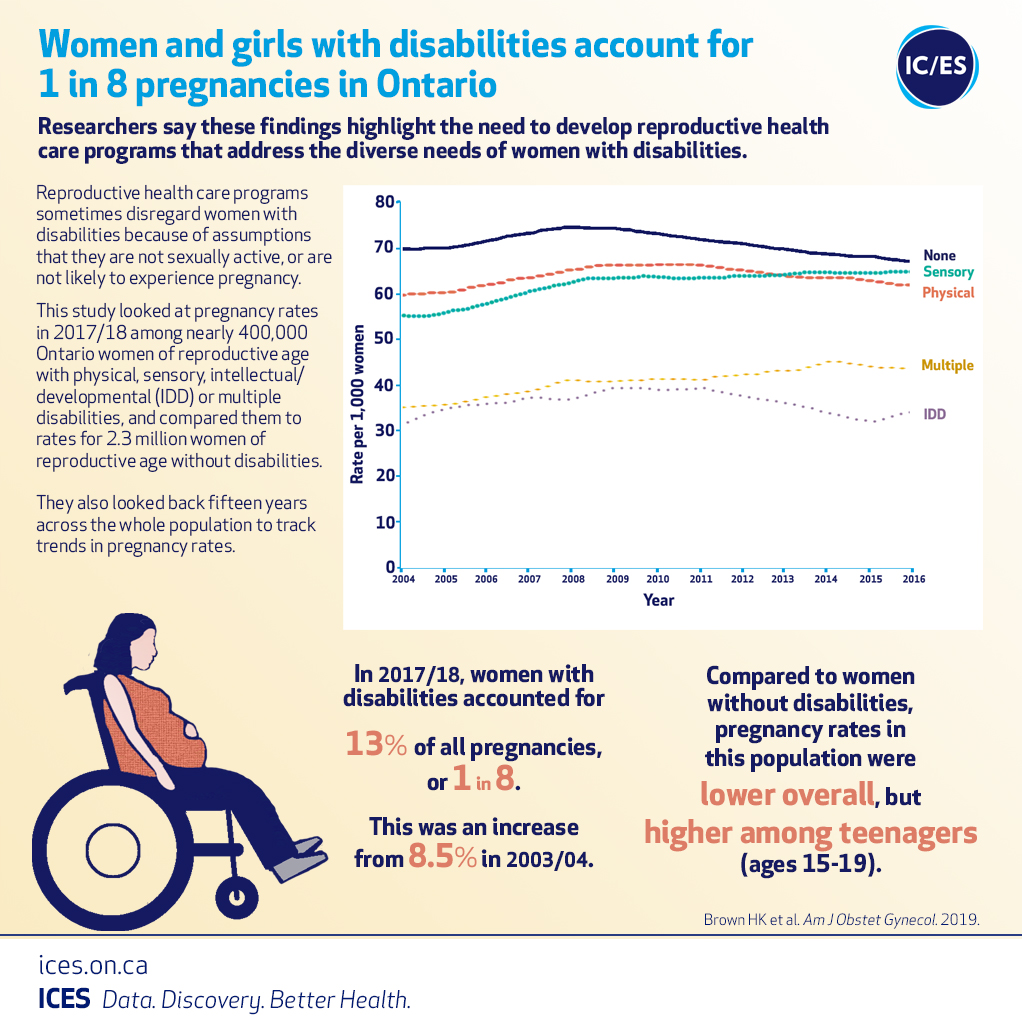 We now know that more women with disabilities are becoming pregnant: https://www.ajog.org/article/S0002-9378(19)31355-9/fulltext
We now know that more women with disabilities are becoming pregnant: https://www.ajog.org/article/S0002-9378(19)31355-9/fulltext
There is growing evidence that women with disabilities are at increased risk for pregnancy-related complications, including gestational hypertension, cesarean delivery, and postpartum hospitalization (see our review in @AJOG_thegray: https://www.ajog.org/article/S0002-9378(19)30899-3/fulltext)
However, there has not been a summary of the research on the health outcomes of their newborns and infants.
We conducted a systematic review and meta-analysis to examine the health outcomes of newborns and infants of women with physical, sensory, and intellectual/developmental disabilities, compared to those born to women without these disabilities.
Now published in Pediatrics ( @AAPJournals), here is what we found in the 31 studies that we reviewed: https://doi.org/10.1542/peds.2020-1635
The newborns of women with physical, sensory, and intellectual/developmental disabilities are at elevated risk for low birth weight, compared to those born to women without these disabilities.
Studies of preterm birth and other neonatal complications also suggested elevated risk for these outcomes.
There were fewer studies examining infant health outcomes, with mixed results, highlighting the need for more research in this area.
Other gaps in the evidence: Most studies examined newborns of women with intellectual/developmental disabilities. Few examined women with physical or sensory disabilities.
Studies also had notable limitations, including a lack of control for important contextual factors that could explain risk. We rated only 5 of the 31 studies as strong in quality using a standardized quality assessment tool: https://merst.ca/ephpp/
Future studies should explore the social, health, and health care factors explaining the disparities experienced by women with disabilities and their offspring.
For example, how might low SES (or financial barriers), chronic health conditions, and lack of social support contribute to these disparities?
Do barriers to care, such as physical and financial barriers and disability stigma, contribute to these disparities?
Women with disabilities may be hesitant to ask for help or avoid accessing services due to fears of stigma, their parenting being scrutinized, and child welfare involvement: https://www.liebertpub.com/doi/10.1089/jwh.2017.6382
The @AmerAcadPeds states: “the health and well-being of children are inextricably linked to their parents’ physical, emotional and social health, [and] social circumstances…”
As such, possible interventions to address these disparities include family-centered pediatric care. @CanPaedSociety
To facilitate pediatricians in caring for families of women with disabilities, there would be a need for provider education on the social circumstances, medical risks, and stigma faced by mothers with disabilities, as well as their health care needs.
Such as longer and more frequent appointments, accessibility and communication requirements, and other accommodations such as home or virtual visits.
We must also work proactively to support women with disabilities in the preconception period and during pregnancy. @SOGCorg @CAPWHN @FamPhysCan @apgonews @acog @OntarioObgyns @ontariomidwives @Canadamidwives
Such efforts could make a positive impact on the health of women with disabilities and their infants.
Thank you to my supervisor @HilaryKBrown for letting me take a leading role on this review, and to @doc_statuskuo and @HoutrowMDPhDMPH for their excellent commentary on our review: https://doi.org/10.1542/peds.2020-032607 /end of 


 Read on Twitter
Read on Twitter


